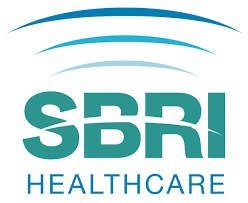SBRI Healthcare backs high potential cancer screening technologies
 Cancer survival rates in England are at an all-time high with over 7000 more people surviving cancer than three years ago. However, urgent GP referrals to specialists have increased by over 500,000 since 2014, to in excess of over 1.7 million people. By 2035, it is projected that at least 500,000 people will be diagnosed with cancer in the UK each year, an increase of 40% compared to current levels.
Cancer survival rates in England are at an all-time high with over 7000 more people surviving cancer than three years ago. However, urgent GP referrals to specialists have increased by over 500,000 since 2014, to in excess of over 1.7 million people. By 2035, it is projected that at least 500,000 people will be diagnosed with cancer in the UK each year, an increase of 40% compared to current levels.
With UK incidence rates of all cancers on the increase, the greatest opportunity to improve the number of patients who survive lies in increasing rates of early diagnosis through improved cancer screening.
Today SBRI Healthcare, the NHS England funded initiative championed by AHSN Network, announced its latest round of development awards. It will support high potential cancer screening solutions. The ten successful companies that share in a £1 million investment have all demonstrated the ability to transform screening and facilitate both earlier and faster diagnosis of cancer.
Among the winning technologies is:
- a digital platform that supports GPs to identify patients with suspected cancer early using the latest evidence from multiple diagnostic pathways to recommend appropriate tests, investigations or referrals a patient in under 30 seconds.
- a non-invasive prostate liquid biopsy test for risk stratification of men suspected of prostate cancer to aid identification of those who will benefit from prostate biopsy and those who could safely forgo it.
- an AI enabled diagnostic technology for the automatic identification of metastatic regions in lymph nodes to increase accuracy and speed of a cancer diagnosis. This will alleviate the current diagnostic bottle neck and associated delay in starting a patient’s treatment.
- a development to an existing AI melanoma screening tool which assesses pigmented lesions at an early stage in a primary care setting, and has potential to significantly improve the skin cancer pathway and patient outcomes.
The 10 successful projects each receive between £94,000 and £100,000 funding and will benefit from support from the SBRI Healthcare team to demonstrate technical feasibility over a six-month development phase. After this, all businesses will have the opportunity to pitch for a further £1 million for further development and commercialisation of their technologies.
Professor Stanley Kaye, Professor of Medical Oncology, The Royal Marsden Hospital commented: “Earlier cancer diagnosis is now a major priority in the UK. With this in mind, it has been extremely encouraging to have the opportunity to examine the projects brought forward by SBRI Healthcare, who have played a major role in this context. The scope of the call was deliberately wide, the quality of applications was very high and judgement was therefore challenging.
“There are opportunities for improvement at various stages along the cancer journey, from initial presentation to more personalised screening and treatment, and the range of successful applications reflects this. We certainly look forward to hearing of the initial findings, and for cancer patients in the UK we are confident that the investment will be a worthwhile one.”
David Shackley, Medical Director of Greater Manchester Cancer added: “We have seen some really excellent bids from small businesses in this round of SBRI Healthcare with a key theme coming through of the evolving interest in developing computer aided diagnosis, in both radiology and pathology. Such technology will I am sure, transform cancer care with faster and more reliable diagnosis by supporting doctors make the right decisions. It’s fantastic that companies are helping the NHS develop such solutions.”
Dr Bhavagaya Bakshi, co-founder of funded company, ‘C the Signs’ said: “We are extremely grateful to SBRI Healthcare for this award. The funding will enable us to develop our technology further and make a significant difference to patients’ lives. As two NHS doctors, we founded ‘C the Signs’ to revolutionise the early diagnosis of cancer. Covering the entire spectrum of cancer, C the Signs is a digital platform that can identify patients at risk of cancer in under 30 seconds. The tool is currently being used in three health authorities, covering one million patients, with the plan to roll it out across the NHS.”
The companies (and supporting Academic Health Science Network) are: Aidence BV (The Netherlands), C the Signs Ltd (Eastern AHSN), Cambridge Oncometrix Ltd (Eastern AHSN), Chromition Ltd (Greater Manchester AHSN), CorporateHealth International UK Ltd (Scotland), DeepMed IO (Greater Manchester), FaHRAS (East Midlands AHSN), Oncimmune Ltd (East Midlands AHSN), Skin Analytics Ltd (Imperial College Health Partners) and VODCA Ltd (Imperial College Health Partners).